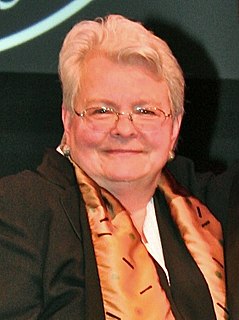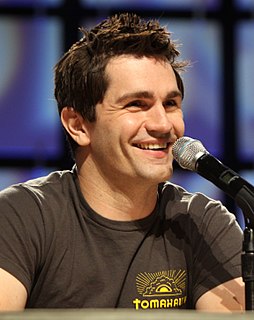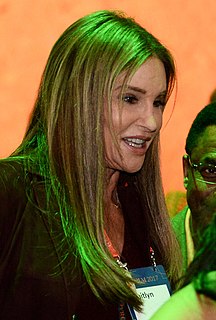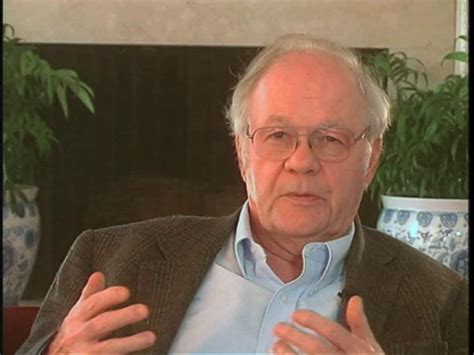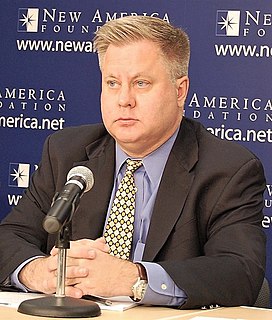Top 1200 Moral Issues Quotes & Sayings - Page 16
Explore popular Moral Issues quotes.
Last updated on December 4, 2024.
I'm not saying anything one way or the other about the two ballot issues. I am not speaking about the particular ballot issues. Those are up to the people of Ohio. But I certainly support the efforts of the governor to reign in the scale of government. I am not terribly familiar with the two ballot initiatives. But I am certainly supportive of the Republican Party's efforts here.
It seems fair to say that while the moral standards of the nineteenth century persisted almost unchanged into the twentieth, moral practices changed sharply, and that though the standards of the nineteenth century persisted the institutions that had sustained them and the sanctions that had enforced them lost influence and authority.
How does something immoral, when done privately, become moral when it is done collectively? Furthermore, does legality establish morality? Slavery was legal; apartheid is legal; Stalinist, Nazi, and Maoist purges were legal. Clearly, the fact of legality does not justify these crimes. Legality, alone, cannot be the talisman of moral people.
I want to seduce the audience. If they can go along for a ride they wouldn't ordinarily take, or don't even know they're taking, then they might see highly charged political issues in a new and unexpected way. . . . The theatre is now so afraid to face its social demons that we've given that responsibility over to film. But it will always be harder to deal with certain issues in the theatre. The live event - being watched by people as we watch - makes it seem all the more dangerous.
People talk about the idea of special relationships, that is, the morality only really binds people who stand in some kind of contractual relationship with each other but in fact if you take that seriously as a criteria of when we have a moral relationship then it's hard to see why we would have moral obligations to strangers for example or people who live across the sea from us but yet, every decent person believes that we do.
It is true (independently of our conceptualisation) that it is wrong to inflict pain on a sentient creature for no reason (she doesn't deserve it, I haven't promised to do it, it is not helpful to this creature or to anyone else if I do it, and so forth). But if this is a truth, existing independently of our conceptualisation, then at least one moral fact (this one) exists and moral realism is true. We have to accept this, I submit, unless we can find strong reasons to think otherwise.
No genuine equality, no real freedom, no true manhood or womanhood can exist on any foundation save that of pecuniary independence. As a right over a man's subsistence is a power over his moral being, so a right over a woman's subsistence enslaves her will, degrades her pride and vitiates her whole moral nature.
Market forces have no intrinsically moral direction, which is why, before he wrote The Wealth of Nations, Adam Smith wrote The Theory of Moral Sentiments. Ethics should precede economics. But it doesn't have to. . . . We know this because we've seen the results of capitalism without conscience: the pollution of the air we breathe, the water we drink, and the food we eat; the endangerment of workers; and the sale of dangerous products - from cars to toys to drugs. All in pursuit of ever-greater profits.
While I think in principle people should not have irrational beliefs, I should say that as a matter of fact, it is people who hold what I regard as completely irrational beliefs who are among the most effective moral actors in the world, in many respects. They're among the worst, but also among the best, even though the moral beliefs are ostensibly the same.
We have gotten so nuanced into social issues that we fail to understand that China is buying up America, we have fallen into debt in such a pervasive way that social security is compromised, we are living longer than we lived before and in order to secure the kind of healthcare that we need without the deficits on our budget, we need really strong leadership that is focused only on the plethora of issues and not just the traditional concerns that have driven us to the ballot box.
I often ask myself: "What would Theodore Roosevelt do?" One can never know, of course. The ultimate contribution of consequential leaders is often their capacity to reframe issues in novel ways. That said, his leadership engaged, at a foundational level, whether the American "national character" would accept decline and mediocrity, or would go all-in for leadership and excellence. Amid the myriad of otherwise disconnected issues before us, that choice is emerging yet again.
I would say to anybody who thinks that all the problems in philosophy can be translated into empirically verifiable answers - whether it be a Lawrence Krauss thinking that physics is rendering philosophy obsolete or a Sam Harris thinking that neuroscience is rendering moral philosophy obsolete - that it takes an awful lot of philosophy - philosophy of science in the first case, moral philosophy in the second - even to demonstrate the relevance of these empirical sciences.
While some animals exhibit individual powers in higher perfection, man stands for their superior, not only in combining in his own body all the senses and faculties which they possess, but in being endowed with moral and intellectual powers which are denied to them, and which at once place him at the head of the living creation, and constitute him a moral, religious, intelligent, and responsible being.
That's one thing about Dave Filoni. He doesn't call me up unless there's something to think about or there's something that we have to work out on a philosophical or moral or a mythological riddle that we need to solve. Some sort of moral conundrum that we need to place our feet on one side or the other. It's fun when we can ambiguously put those feet into the sand and let the fans discover for itself what it all means.
I think I would rather live on the verge of falling and let my security be in the all-sufficiency of the grace of God than to live in some pietistic illusion of moral excellence. Not that I don't want to be morally excellent but my faith isn't in the idea that I'm more moral than anybody else. My faith is in the idea that God and His love are greater than whatever sins any of us commit.
Recreation in the open is of the finest grade. The moral benefits are all positive. The individual with any soul cannot live long in the presence of towering mountains or sweeping plains without getting a little of the high moral standard of Nature infused into his being ... with eyes opened, the great story of the Earth's forming, the history of a tree, the life of a flower or the activities of some small animal will all unfold themselves to the recreationist.
A detective novel should contain no long descriptive passages, no literary dallying with side-issues, no subtly worked-out character analyses, no 'atmospheric' preoccupations. Such matters have no vital place in a record of crime and deduction. They hold up the action and introduce issues irrelevant to the main purpose, which is to state a problem, analyze it, and bring it to a successful conclusion. To be sure, there must be a sufficient descriptiveness and character delineation to give the novel verisimilitude.
Really great moral teachers never do introduce new moralities: it is quacks and cranks who do that.... The real job of every moral teacher is to keep on bringing us back, time after time, to the old simple principles which we are all so anxious not to see; like bringing a horse back and back to the fence it has refused to jump or bringing a child back and back to the bit in its lesson that it wants to shirk.
The strike and its outcome had an enormous impact on the system of education and on our lives as well. The strike began as a response to the college's refusal to hire Professor Nathan Hare [the so-called father of black studies], and certainly unified the college around issues of justice. These issues were reflected in many communities: the Asian American community, Hispanic community, Native American community.
As Muslims, we must have an active presence based on ethical and moral consistency. We need to be very vocal, to inform people, to demonstrate when necessary. We need to write so that the people understand that what they are getting from the media and politicians is biased and not accurate. And this is true especially when it comes to some communities within the U.S. or with respect to the Middle East and Africa. This is what I am expecting from a new generation of leaders: Meet these expectations of moral consistency.
Wherever moral ambition exists, there right exists. And moral ambition itself must be presumed present in subconsciousness, even when the conscious self seems to reject it, so long as society has resources for bringing it into action; in much the same way that the life-saver presumes life to exist in the drowned man until he has exhausted his resources for recovering respiration.
Indiscriminate tolerance and indiscriminate condemnation are not two opposites: they are two variants of the same evasion. To declare that “everybody is white” or “everybody is black” or “everybody is neither white nor black, but gray,” is not a moral judgment, but an escape from the responsibility of moral judgment.
My first fundamental premise of our faith is that God is real and so are eternal truths and values not provable by current scientific methods. These ideas are inevitably linked. Like other believers, we proclaim the existence of the ultimate lawgiver, God our Eternal Father, and the existence of moral absolutes. We reject the moral relativism that is becoming the unofficial creed of much of modern culture.
It seems perfectly clear that Economy, if it is to be a science at all, must be a mathematical science. There exists much prejudice against attempts to introduce the methods and language of mathematics into any branch of the moral sciences. Most persons appear to hold that the physical sciences form the proper sphere of mathematical method, and that the moral sciences demand some other method-I know not what.
The moral justification of capitalism does not lie in the altruist claim that it represents the best way to achieve 'the common good.' It is true that capitalism does -- if that catch-phrase has any meaning -- but this is merely a secondary consequence. The moral justification for capitalism lies in the fact that it is the only system consonant with man's rational nature, that it protects man's survival qua man, and that its ruling principle is: justice
The time has also come to recognize the painful truth that traditional Judeo-Christian moral values of pain and pleasure in human relationships have contributed substantially to child abuse and to the prevalence of physical violence in Western civilization.... The religious system upon which our culture is based holds that pain, suffering and deprivation are moral and necessary to save one's soul and make one a 'good person.' The crucifixion and scourging of Christ are examples.
At the center of the Christian faith is the affirmation that there is a God in the universe who is the ground and essence of all reality. A Being of infinite love and boundless power, God is the creator, sustainer, and conserver of values....In contrast to the ethical relativism of [totalitarianism], Christianity sets forth a system of absolute moral values and affirms that God has placed within the very structure of this universe certain moral principles that are fixed and immutable.
Civil libertarian activists are found overwhelmingly on the left. Their right-wing brethren have been concerned with issues more important than civil rights, voting rights, abuses by police and the military, and the subordination of politics to religion - issues like the campaign to expand human freedom by turning highways over to toll-extracting private corporations and the crusade to funnel money from Social Security to Wall Street brokerage firms.
The very idea of freedom presupposes some objective moral law which overarches rulers and ruled alike. Subjectivism about moral values is eternally incompatible with democracy. We and our rulers are of one kind only so long as we are subject to one law. But if there is no Law of Nature, the ethos of any society is the creation of its rulers, educators and conditioners; and every creator stands above and outside his own creation.
And so was Luria, whose words now came back to me: ‘A man does not consist of memory alone. He has feeling, will, sensibility, moral being ... It is here ... you may touch him, and see a profound change.’ Memory, mental activity, mind alone, could not hold him; but moral attention and action could hold him completely.
For God to be kept out of the classroom or out of America's public debate by nervous school administrators or overcautious politicians serves no one's interests. That restriction prevents people from drawing on this country's rich and diverse religious heritage for guidance, and it degrades the nation's moral discourse by placing a whole realm of theological reasoning out of bounds. The price of that sort of quarantine, at a time of moral dislocation, is - and has been - far too high.
In the U.S., African- Americans, no matter what we do - when we sit in, when we freedom ride, when we kneel in, whatever it is, the initial response from the public tends to be overwhelmingly negative, because basically we're kind of raining on folks' parades. As time goes on, the Muhammad Ali's and all the people that raised those issues, they then become heroes later when people reflect on the courage they showed and the issues that they raised. And Donald Trump is in danger of being a more and more reviled figure as the years go on.
The reason I love travel is not just because it transports you in every sense, but because it confronts you with emotional and moral challenges that you would never have to confront at home. So I like going out in search of moral and emotional adventure which throws me back upon myself and forces me to reconsider my assumptions and the things I took for granted. It sends me back a different person.
Their usual mistaken premise is that they affirm some consensus among people, at least among tame peoples, concerning certain moral principles, and then conclude that these principles must be unconditionally binding also for you and me-or conversely, they see that among different peoples moral valuations are necessarily different and infer from this that no morality is binding-both of which are equally childish.
There is a moral virtue, a moral fidelity, ability and honesty, which other men, besides church members, are, by good nature and education, by good laws and good examples nourished and trained up in; so that civil places and trust and credit need not be monopolized into the hands of church members (who sometimes are not fitted for public office), while all others are deprived and despoiled of their natural and civil rights and liberties.
As an anti-hunger advocate and longtime member of the Entertainment Council for Feeding America, I have become more and more aware of the issues surrounding hunger in our country, a country where 68% of adults above the age of 20 are overweight or obese. What a staggering thought, when 1 in 6 adults don't have enough food to eat on a regular basis. Good, healthy meal choices play a huge part of controlling weight and other health related issues.
Both Marx and Nietzsche understood that moral outrage is the last resort of the powerless. That is why Marx refused to issue moral condemnations of capitalism, preferring instead to lay out, calmly and ruthlessly, his reasons for believing that it is destined to be replaced by socialism. And that is why Nietzsche mocks Christianity for portraying its crucified Saviour as bait wriggling on a hook to catch unsuspecting souls.
How can we encourage other human beings to extend their moral sympathies beyond a narrow locus? How can we learn to become mere human beings, shorn of any more compelling national, ethnic, or religious identity? We can be reasonable. It is in the very nature of reason to fuse cognitive and moral horizons. Reason is nothing less than the guardian of love.
I think I've learned a lot about how to make movies, and particularly about how to edit movies by thinking about how similar problems are resolved in other forms. The issues in all forms are the same in an abstract sense, aren't they? Characterization, abstraction, metaphor, passage of time... Whether it's a movie, a novel, a play, or a poem, those issues exist. And each person resolves them differently.
Lastly, our ancestors established their system of government on morality and religious sentiment. Moral habits, they believed, cannot safely be trusted on any other foundation than religious principle, nor any government be secure which is not supported by moral habits.... Whatever makes men good Christians, makes them good citizens.
We can't literally talk with everybody else on the planet or even with representatives of every group. But we can be in favor of the respectful exchange of ideas in ways that don't presuppose that all the right answers are on our own side. Still, we should all have moral bottom lines. Once genocide or torture begins the priority shifts from understanding to stopping it. One hope I have for the global conversation as instantiated in human rights treaties is that we are slowly coming to consensus on certain moral baselines.
The desire for guidance, love, and support prompts men to form the social or moral conception of God. This is the God of Providence, who protects, disposes, rewards, and punishes; the God who, according to the limits of the believer's outlook, loves and cherishes the life of the tribe or of the human race, or even of life itself; the comforter in sorrow and unsatisfied longing; he who preserves the souls of the dead. This is the social or moral conception of God.
Instead of going on a beach vacation to Hawaii, you could go to a Democratic convention, a state convention, a conference being held to discuss issues you care about, or even go hear a politician speak. Soon your life is all about government and politics and you delve into issues and public policy. When you do that, not only do you learn to be a good candidate for office, but you also learn to be a good elected official.
Right after undergrad, I started doing low-level work on health issues in sub-Saharan Africa, and what struck me was the disconnect between how people in New York would speak about some of the issues people were facing. At the time, 2006-ish, there were a number of big media campaigns to raise awareness about HIV in sub-Saharan Africa.
For an act to be moral the intention must be based on compassion, not duty. We do something because we want to do it, because we feel we have to do it, not because we ought to do it. And even if our efforts fail - or we never even get to implement them - we are still moral because our motivation was based on compassion.
Poetry interprets in two ways: it interprets by expressing, with magical felicity, the physiognomy and movements of the outward world; and it interprets by expressing, with inspired conviction, the ideas and laws of the inward world of man's moral and spiritual nature. In other words, poetry is interpretative both by having natural magic in it, and by having moral profundity.
Successful or not, acts of physical courage always bring honor. It is the smaller forms of valor - standing up for principle at the risk of social disapproval, economic loss or injury to career - that require the greatest moral will power. Since there is usually little upside to winning and a significant and often lasting downside to losing, moral courage often requires as much character as physical bravery.
We have voluntarily agreed to let an invisible government sift the data and high-spot the outstanding issues so that our field of choice shall be narrowed to practical proportions. From our leaders and the media they use to reach the public, we accept the evidence and the demarcation of issues bearing upon public questions; from some ethical teacher, be it a minister, a favorite essayist, or merely prevailing opinion, we accept a standardized code of social conduct to which we conform most of the time.




